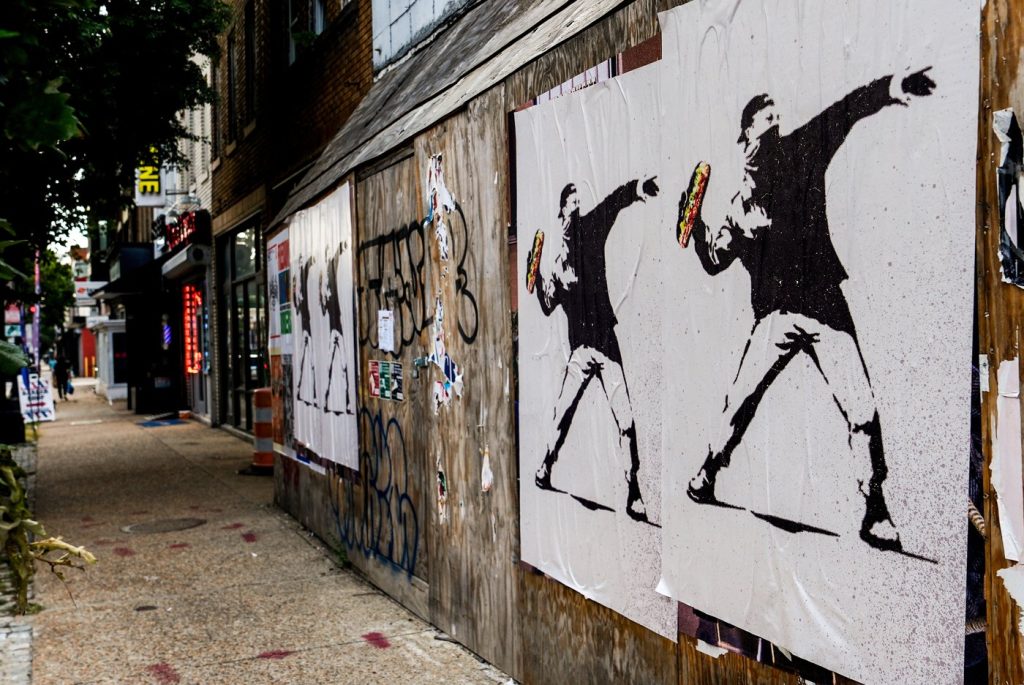In Washington, D.C., a unique case is unfolding as Sean Charles Dunn faces trial for a misdemeanor assault charge related to his political protest. Dunn, a local resident, was accused of throwing a subway-style sandwich at a U.S. Customs and Border Protection (CBP) agent outside a nightclub on the night of August 10. The prosecution contends that this act, regardless of its intent, constitutes a federal crime, while the defense argues it was a harmless expression of dissent against then-President Donald Trump's law enforcement initiatives in the nation's capital.
According to Assistant U.S. Attorney John Parron, throwing objects at people, regardless of the motivations behind such actions, cannot be justified. Meanwhile, defense attorney Julia Gatto maintains that Dunn's actions were a symbolic protest rather than a violent act. Gatto emphasized that Dunn did not hide his actions and is “overwhelmingly not guilty.” Dunn's sandwich throw has turned him into a figure of resistance, and videos capturing the incident quickly went viral on social media, prompting the appearance of murals depicting him in the act throughout the city.
The incident, characterized as an "exclamation point" by the defense, saw Dunn shouting profanities and calling the agents “fascists” and “racists.” CBP Agent Gregory Lairmore testified that the sandwich “exploded” upon impact, even expressing that he could smell the onions and mustard from it. Agent Lairmore confirmed his attempts to de-escalate the situation, highlighting his professionalism in the face of Dunn's aggressive statements while also recognizing his constitutional right to voice his opinion. After throwing the sandwich, Dunn fled but was apprehended shortly thereafter.
The incident has garnered significant public attention, in part due to the viral videos. Lairmore noted that following the event, colleagues within the CBP made light of the situation by gifting Lairmore humorous items related to the sandwich incident, suggesting that the agents themselves viewed the case as laughable. However, the prosecution asserts that such actions cross a vital line in respect for federal officers' duties, despite the broader public sentiment about the law enforcement surge associated with Trump's presidency.
Previously, a grand jury declined to indict Dunn on a felony assault charge, reflecting a broader pushback against Justice Department prosecutions linked to Trump's surge. This refusal led to the filing of misdemeanor charges instead. Prosecutors maintain that there must be accountability for disruptive actions, urging jurors to consider the legal implications of Dunn's conduct in a federal context.
Notably, Dunn previously worked as an international affairs specialist within the Justice Department before his arrest, which resulted in his dismissal from the department as stated by Attorney General Pam Bondi, who labeled him as a symbol of the “Deep State.” Following his initial release, Dunn's home was raided by federal agents in riot gear, a move which his lawyers argue was overly aggressive and politically motivated. They claim this indicates that the prosecution is an example of selective enforcement against Dunn due to his exercise of political expression.
Currently, Dunn faces charges that could have significant implications, not only for his future but also in relation to the broader debates about political expression and the treatment of protesters in the U.S. criminal system. The outcome of this case may set a precedent regarding how acts of protest are treated in federal law, especially those aimed at law enforcement in politically charged contexts. The trial continues as jurors weigh the evidence presented by both sides.











